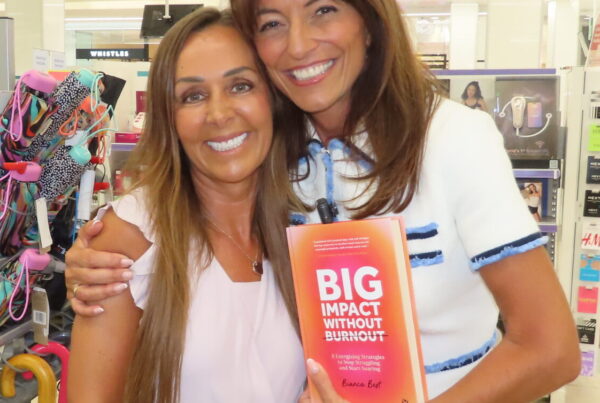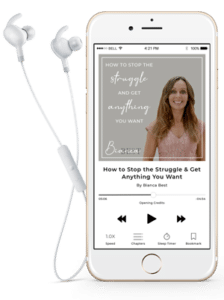“Damn, I need another coffee/wine/cigarette/*insert self-sabotaging force du choix*”, said the pumped up, stressed-out, shattered, pushing-on-despite ambitious leader.
Do you ever wonder why genuinely looking after yourself – drinking the water, choosing the nourishing food, taking the walk, getting the early night – can feel like such a monumental act? Why it’s so much easier to pour another glass of fizz, reach for the sweet treat, or push through exhaustion ‘just to get it all done’?
Today, we talk endlessly about self-care as if it’s as simple as planning a spa day et voila ‘Serene Sustainable Success’ is ours forever. But the truth is: transformative self-care is emotional work. It asks us to rewrite the earliest instructions we ever received about who we must be to feel safe, loved, and worthy.
Self-care doesn’t begin as an adult decision. It begins as a childhood lesson.
Childhood: When Other People Owned Our Needs
As children, our needs were met, or not, by the adults around us. We learned whether emotions brought closeness or discomfort, whether needs were welcome or too much, whether rest was allowed or labelled as laziness.
Some families modelled stillness, play, and softness. Others celebrated productivity, resilience, independence.

Mine was a confusing blend of creative floatiness (Mum: don’t do your homework if you don’t feel like it, school doesn’t matter anyway, just do some drawing…), hardcore achievement (Dad: run at dawn, build a business by 20, get A’s always, work hard but party hard too…), and the combined apparent necessity of a permanent glossy outer sheen (Mum & Dad: look good, climb the ranks, live in luxury, etc. Side Note: My mum was a glamorous singer, my dad an academic entrepreneur – unsurprisingly they divorced before the daffodil photo was taken!)
We don’t realise it at the tender time, but we are forming rules:-
“I must be good to be loved.”
“I must keep going to be safe.”
“My needs come last.”
“Rest is earned.”
“You’ll be more popular if you’re the last one standing/dancing atop the bar.”
We absorb what we see. We become what kept us connected.
And those beliefs don’t disappear when we grow up. They follow us – silently and sometimes sinisterly directing our self-care choices decades later.
Adolescence Reinforces the System
When adolescence storms in, a ferocious desire for independence erupts creating identity turmoil, feelings that feel too much for one small human interior to hold.
So we cope. Some of us withdraw into perfectionism. Some of us silence ourselves to be accepted. And some, like I did, dance and channel the anxiety away under bright lights and impact obsession. It looked like wild, carefree celebration and a brilliantly unwavering work ethic, but too often I was just escaping emotions I didn’t yet have the tools to face.
Sadly, we don’t astutely think: “I am self-soothing in maladaptive ways because of subconscious attachment patterns.” (I wish!)
Nope, we think:-
“One more night out will make me feel better.”
“One more achievement and then I’ll relax.”
“One more reinvention and maybe I’ll finally feel okay.”
These coping mechanisms become habits. Habits become personas. Personas become cages.

Adulthood: When High Performance Meets Human Limits
Fast-forward. We’re competent, capable adults, leaders in our fields, orchestrators of families, organisers of endless to-dos. We are rewarded for being the ones who never drop a ball.
But in the pursuit of being everything to everyone, we forget ourselves. The nervous system stops asking politely and begins to protest: a tight chest, irritability, sleeplessness, sugar cravings, addictions, tension headaches, that “wired but tired” state.
And yet on we push, because that’s what strong looks like. Now we think:-
“I deserve one more drink to relax. I’ll get to the task tomorrow.”
“One more 100 hour week will sort it. Then I’ll rest.”
“Maybe another child/dog/holiday/promotion/business will solve the tension, then we’ll be okay.”
“Perhaps another certificate is all I need, then success and peace will come.”
We maintain patterns we inherited and subconsciously ingrained, reinforced now by peers and both professional and familial expectations. Those coping strategies which became habits have quietly become our identity. We are that high functional everything to everyone machine. And rather than address niggles, we suppress them leaving self-care to feel like a luxury, and, perhaps subliminally, a threat.
However, the trick to succeeding with grace is breaking this wonky relationship with productivity which the modern working world has normalised by disrupting self-sabotage with conscientious, ever-expansive and deepening self-care. (And if you’ve got patterns as rigidly formed as mine, this takes a LOT of work and unlearning.)
Why Self-Sabotage Feels Safer Than Self-Care
Self-care is brandished about today like it’s easy and more fool those of us who don’t pop our oxygen masks on first. I preach this advice in my time management workshops often. But it’s not simple when our default way of soothing ourselves IS self-sabotaging. To interrupt the pattern and invite self-care requires focused thought, consciously directed time and energy, it requires breaking the rules that used to protect us. This is not easy.
As we attempt to re-programme our brain’s default mode network, each nourishing act may challenge a belief wired in childhood:
• If I slow down, I’ll fall behind • If I ask for help, I’m weak • If I rest, I’ve failed • If I stop achieving, I’ll lose love • If I feel my feelings, they’ll overwhelm me.
No wonder we revert to familiar quick fixes: Stress? Coffee. Exhaustion? Wine. Loneliness? Work harder. Emotional discomfort? Scroll, shop, snack. Failure? Bender time.
Self-sabotage is never stupidity or to be criticised, it’s unconscious self-protection and therefore needs to be understood, surfaced and soothed away healthily. Self-sabotage is the nervous system saying, “This is familiar. This is how we’ve survived.”

Self-Care = Self-Reparenting
The turning point isn’t when we buy a fancy journal or join a meditation app (but they are good starts), it’s when we recognise that self-care means becoming the parent we needed:
Curious. Attuned. Loving. Boundaried. Consistent. Kind. *Insert any void you’re aware of within yourself.*
For those of us tied into performative (aka protective) ways of showing up for others, it may be wildly challenging to answer the simple question: “What do I need right now, truly?” The answer might be a nap. It might be water. It might be a tearful conversation with someone safe. It might be saying no.
Self-care is the radical insistence: “I matter too.” It’s the gentleness of acknowledging soft and slow is good, that there is power in a pause.
Micro Acts, Major Shifts
We imagine transformation as dramatic, but often neural rewiring is slow and gradual. New pathways form through tiny repetitions:
• Hydrate before the caffeine hits • Step outside between meetings • Eat without the screen • Ask for help before you reach overwhelm • Choose the calm breath over the quick escape
Not perfectly, just consistently enough to feel the difference, in the knowledge this newness is interrupting the old way of being which no longer serves adult you.
Success With Grace
The person we seek to become – grounded, vibrant, authentic – doesn’t arrive through more force. This person emerges when we make space for them. But in a society that celebrates hustle-culture and where busyness is a badge of honour and doing rather than being is rewarded, this self-care malarky is often a massive challenge. In evolving to better prioritise ourselves, we’re not just letting go of our childhood survival strategies but potentially flowing against cultural norms. So, an identity shift away from perpetual strength/servitude/physical abandonment/etc takes great courage.
But please take comfort in the fact that courage now IS better than this perpetual struggle cycle you may be locked in.
It won’t be easy. Growth starts with self awareness, then action. And it won’t be hunky dory over night. There is no quick fix to melting a lifetime of beliefs. There will be work to do, habits to break, cycles to end. It may looks like this: One day you choose nourishment over numbing. The next day you forget and revert. Then the next day you remember again. Up and down, highs and lows, forward then back. But this is not failure. It’s just being human. When we regress we don’t judge and sabotage further, we shrug and give ourselves an inner cuddle and hair ruffle. Kindly. Accepting. That was what was most needed then. Now is a new moment. Now we are present and conscious. Being the gentle parent to yourself is what matters most and how growth and that healthy rewiring we want will sustain. It’s how the inner critic will become your inner friend.
My work now, both personally and professionally, is about unlearning the myth that success means self-abandonment. I’m letting softness and strength coexist. Ambition and wellbeing blend. Embracing the power in those pauses. Teaching this and honouring this within myself. For me, some aspects of self-care are harder than others. Some self-sabotaging habits take huge determination and course correcting day by day, sometimes hour by hour, catching myself when in survival mode. Others have been easy switches respecting one of my values I call ‘vibrant vitality’. My journey to softness has taken decades and I remain unquestionably a work in progress, as I believe we all are.

A New Promise to Yourself
Tonight, as you snuggle into bed: Place a hand on your heart, feel the warmth, acknowledge the softness, whisper quietly: “I am worthy of the care I give others.”
How you treat your kids, pets, partner or friends is as gently as you deserve to treat yourself. Self-care is not selfish. It is leadership. It is healing. It is how we rise without losing ourselves. It’s essential to shift from struggling to soaring in todays tumultuous world.
Here’s to the courageous reclamation of our own needs — the most powerful form of success with grace.
Thank you for reading and caring about self-care – you’ve got this! If you enjoyed this illumination, please share with a loved one or colleague who may equally benefit. To nourishment… with love, Bianca x
Back in 2015, after two decades of raising four children while building and selling a business, then climbing the corporate ladder, and immersing myself in healing and consciousness study, I finally broke my burnout cycle. I learned how to keep achieving my dreams without falling over. I bottled up how I did it and started teaching The Energy-Scape™ method around the world with ambitious souls and large organisations like Google, British Gas and Amazon. Today, I run The Better Business teaching leaders, entrepreneurs, global orgs and big dreamers how to succeed with grace. It all starts with energy.. Take your Energy Pulse to measure your burnout risk here – http://bit.ly/4q3qtNe, and discover more tips on YouTube @BBTV(The Big Impact Show™) and Instagram. Wishing you Energy Unleashed! Bianca x













